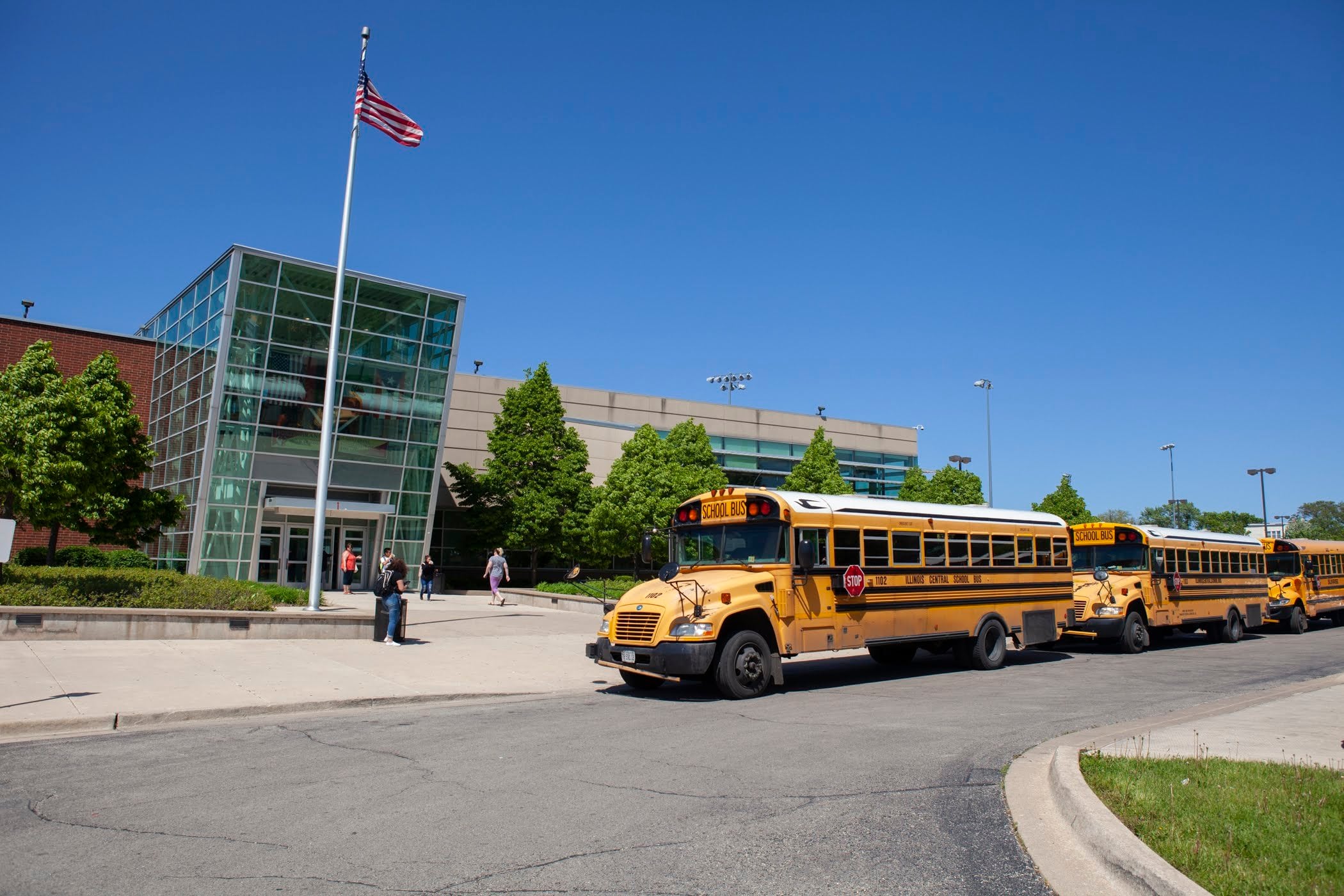The Chicago Board of Education approved a $4 million contract with a longtime transportation vendor amid ongoing problems with student bus routes.
School board members Wednesday approved contracting with Education Logistics Inc., also known as EduLog. The contract with the bus routing software company will run from April 1, 2023, to June 30, 2026, according to the board agenda.
Chicago Public Schools provides transportation for over 17,000 students. According to the district, nearly 870 students have commutes that exceed an hour, while just 11 students have commutes that exceed 90 minutes.
About 435 students currently lack transportation, including 52 students who are in special education programs or are medically fragile and are legally entitled to transportation.
The district said in an email statement that it is committed to providing a solution for those students.
Persistent problems with busing have plagued the district since schools reopened in August 2021 after the pandemic shutdown. For two years, parents have raised concerns about canceled routes and unreliable bus service. Last fall, the district failed to provide reliable transportation for students with disabilities.
In August, the district could not arrange buses for about 1,200 children while another 365 students faced commutes that exceeded 90 minutes.
The district has blamed the national bus shortage for its transportation woes.
The busing problems have prompted the district to resort to taxis, vans, and $500 monthly stipends for parents to drive students to and from school.
EduLog has intermittently contracted with the district for three decades, starting in 1991. Board records indicate its last contract ended in 2015. Under its new contract, EduLog will help Chicago Public School schedule bus routes, assign bus vendors during the regular school year, and determine summer school start times, among other things.
The district may pay EduLog up to $307,000 for the current school year, and more than $1.2 million until 2025-26. The cost is not to exceed $4 million over three years, and the board can terminate the contract after issuing a 30-day notice.
The district has long been plagued with transportation problems.
In 2010, Chicago Public Schools entered into a resolution agreement with the U.S. Department of Education’s Office for Civil Rights to ensure bus services for students with certain disabilities.
Last year, the annual report from the CPS Office of Inspector General revealed that the district had spent millions on bus companies that laid off drivers, contributing to ongoing transportation shortages.
This story has been updated to clarify the vendor’s services.
Mauricio Peña is a reporter for Chalkbeat Chicago, covering K-12 schools. Contact Mauricio at mpena@chalkbeat.org.






